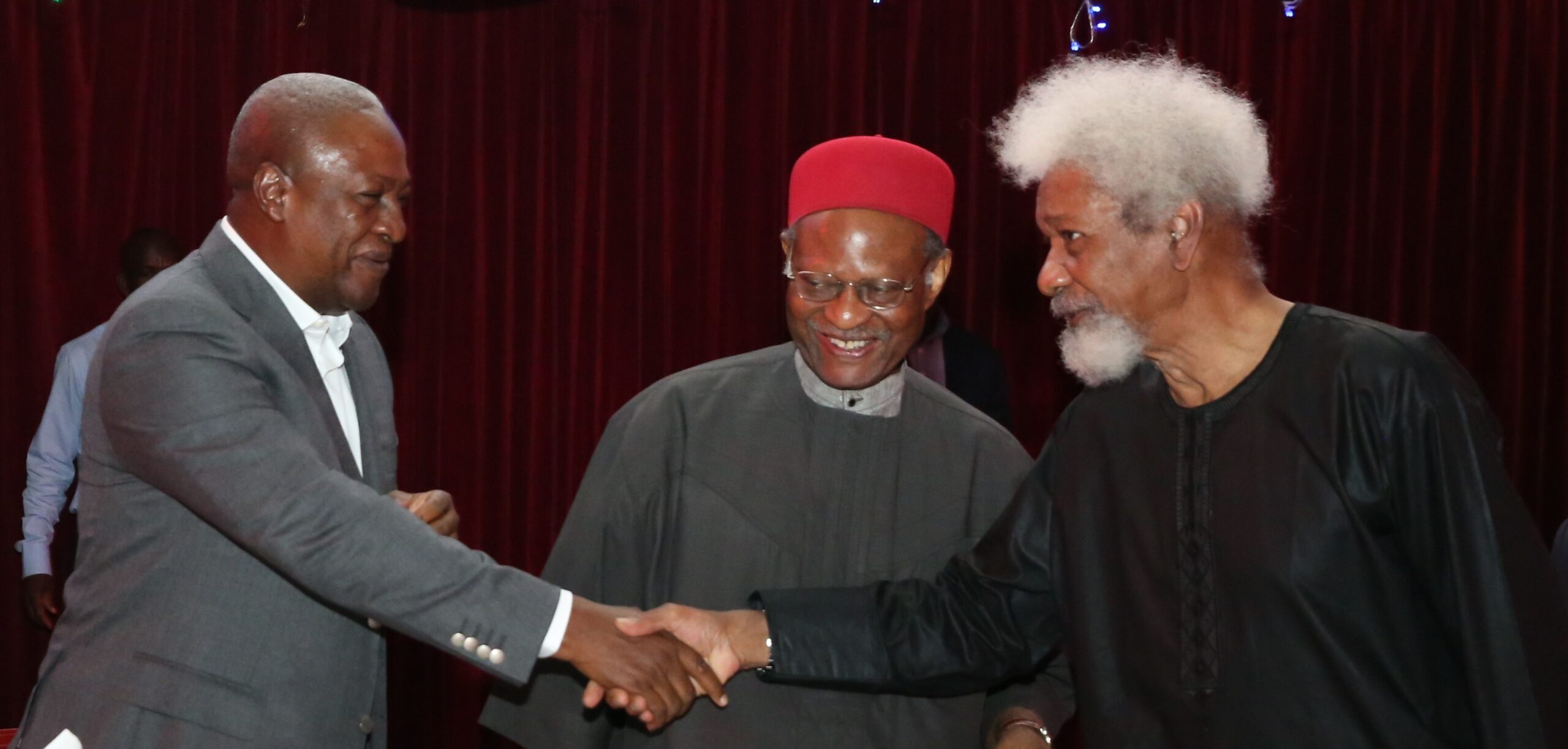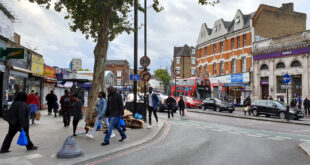Rwandan Stories of Change held an international conference at the University of St Andrews on the 6th of July 2018. We brought together scholars from across the Humanities and Social Sciences to explore how Rwanda has changed since the genocide of 1994.
Chijioke Kizito Onah, Masters Student of Anglophone Literatures, Cultures and Media, Goethe University of Frankfurt, Germany, recently attended the conference. The Nigerian scholar reflects on the event, which took place at the St Andrews University in Fife, Scotland, and its significance for Africa and its many conflicts.
The story began sometime in April (forgive the allusion). I had read of a conference on the Rwandan genocide to be held at St Andrews University. Though still struggling with my own existential needs in Frankfurt, the image of this conference imprinted itself so strongly in my heart; I just couldn’t let it go.
The deadline for submission of abstract was over at the time, and I had no previous project on Rwanda. Yet, the nudging in my heart remained strong and persistent. A few days later, I wrote to the organizers. I needed to participate in this conference, but I had no paper to present or funding to cover my expenses to St Andrews. I had studied the Rwandan genocide just over two years ago during my History course on “East and Central Africa” at the University of Nigeria, Nsukka.
I remember reading Martin Meredith’s concise chapter, “The Grave is Not Yet Full” in his very influential book, The State of Africa. Yearning to know more, I had read Philip Gourevitch’s gripping account in his book, We Wish to Inform You That Tomorrow We Will Be Killed with Our Families. I had even made attempts to write my Bachelor’s thesis on this book. Even though this failed, I wrote my thesis on Uwem Akpan’s collection of short stories, Say You’re One of Them—a title taken from his best short story in that collection, “My Parents Bedroom,” which deals with a family’s experience of the Rwandan genocide.
The Rwandan experience also reminds me often of the Biafran War, and even of the Gukurahundi massacre orchestrated by the Mugabe regime in the early 1980s in Zimbabwe. I think of these conflicts multidirectionally—to use Michael Rothberg’s term. It is to study these twentieth century African conflicts comparatively that I have come to Frankfurt, well reputed in Memory Studies.

That was my argument to the organizers of the conference, insisting that participating in the conference would be the best thing to ever happen to me after goat meat (I can’t imagine anything better than goat meat in this world). I was surprised when the team replied, not just with a permission to participate, but an offer of travel funding, and accommodation. I was delighted. That moment for me remains one of the highlights of 2018.
This account serves not just as a narrative of how I came to participate in the conference, but prepares the ground for the main point I wish to make in this essay: that we should increasingly attend to a mosaic of conflicts that bedevils the African continent from a multi-faceted, pan-African perspective. These issues are connected, and most often, the causes are similar. The tendency for a national approach to attending to African issues will not help to draw attention to other less prominent cases of subjugation and oppression that went on or is still ongoing in the continent. We need to move beyond this by seeing how our sufferings are implicated in the sufferings of other neighbour-states. Perhaps we need to look at the common denominators present in each of these cases and raise our voices when similar trends begin to emerge anywhere in the continent.
Just before embarking on the conference, I had a worthy discussion with my fellow Masters student at Goethe University Frankfurt who agitates against the authoritarian regime in Ethiopia. He told me that thousands of people are held prisoners in Ethiopia in a politically engineered move to crush all opposition. I was never aware of that, nor of the rallies held all across Germany to draw the world’s attention to Ethiopia. He told me that only Ethiopians attend. As expected, he wasn’t aware of the Nigerian military action in South Eastern Nigeria in an attempt to repress the Biafran memory. I do think that we need to begin to think beyond our ethnic identities and nations in demanding for a democratic and egalitarian future in the continent.
Why am I stressing this point? Next year marks the twenty-five years after the end of the most systematic genocide in human history. The Rwandan conference at St Andrews titled: “Rwanda After 1994: Stories of Change” was an attempt to assess the aftermath of this conflict. Survivors who testified, scholars who study the post-genocide Rwanda, and practitioners who are involved in the country all agree that the country has made tremendous progress.
However, what is lacking is a pan-African approach towards understanding this conflict. In fact, not many Africans outside Rwanda are involved in the Rwandan memory at all. This was present even at the conference as I was the only African from outside Rwanda to attend. Not even African universities and intellectual class are championing this moment as a soul-searching moment in the history of the continent. We leave that to the West.
The Rwandan case is peculiar because the victims won. But it is not the only atrocity that darkened the continent a few years ago, neither are the forces of evil asleep now in the continent. A memorial of the Rwandan genocide in 2019 calls for a stance that use Rwanda only as a springboard in remembering these other victims’ suffering even today. But this also calls for a broadening of the gaze beyond Rwanda, or even within Rwanda (a presenter at the conference talked about the marginalization of the Twa voices in the Hutsi-Tutsi narrative of the nation). European memory of the Holocaust has been utilized to say NEVER AGAIN to totalitarianism and subjugation of minorities not just within Europe, but as far away as in US, Australia, and Canada. Africans should begin to form a collective resistance to forces of evil across the continent.
A study of Rwanda should acknowledge the precarious existence of many other minorities across the continent. The 2019 memorial of the Rwandan genocide should not just be a pan-African event but should be championed by African citizens across the world to draw attention to other histories in the continent. We should end the practice of leaving our own narratives and memories in the hands of outsiders.
Finally, Rwandans in the conference provide an awesome example to all Africans: they all engage with their communities, individually, to create the new Rwanda that many agree is a success story. Even though based in the West, most of them founded or participate in one community project or another in Rwanda. Africans everywhere must key into this example by creating personal stories of change and development in our communities. A spittle from all of us can create an ocean whose wave would be unstoppable even by the dark forces that snack at the future of the continent.
 THE AFRICAN COURIER. Reporting Africa and its Diaspora! The African Courier is an international magazine published in Germany to report on Africa and the Diaspora African experience. The first issue of the bimonthly magazine appeared on the newsstands on 15 February 1998. The African Courier is a communication forum for European-African political, economic and cultural exchanges, and a voice for Africa in Europe.
THE AFRICAN COURIER. Reporting Africa and its Diaspora! The African Courier is an international magazine published in Germany to report on Africa and the Diaspora African experience. The first issue of the bimonthly magazine appeared on the newsstands on 15 February 1998. The African Courier is a communication forum for European-African political, economic and cultural exchanges, and a voice for Africa in Europe.
































